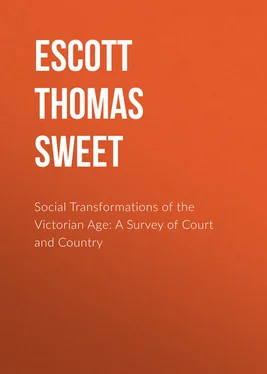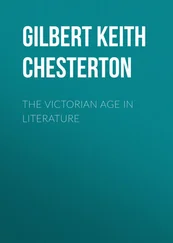Organization in every department of activity or interest is the most conspicuous movement of the last quarter of this century. Some years must yet elapse before we know the exact point to which the legislation now reviewed has disciplined and stimulated the inhabitants of rural England. The object of the controllers of the vestries that the Parish Meetings have superseded was to keep village administration in the hands of a privileged and comparatively leisured minority. Hence it was not unusual to fix the hour for the vestry meeting at 9 a.m.; when of course the male population would be at work in the fields. Under the Act of 1894 the Parish Councillors are bound to hold their sittings in the evening after the day’s work is done. From a historical point of view this legislation cannot be charged with being revolutionary. The powers which the new bodies have assumed in checking encroachments upon common land and other like offences are indeed considerable. That prerogative is not an innovation. It is rather a revival of the authority which in the old Manor Courts, presided over by the steward of the Manor lord, the freeholders could exercise. Beyond question, the most far-reaching and important change introduced into country life by the new machinery is the infusion of the elective element into the nominated magistracy. This has not yet received the attention it deserves. Under the earlier régime, as has been said, certain guardians had a seat at the Union Board because they were magistrates. Under the existing dispensation certain Justices of the Peace owe their place on the magisterial Bench to the fact of their performing the duties of District Councillors and Guardians of the Poor. The relations between the two positions are thus exactly inverted. That the tendency of this change is to soothe the suspicions once widely prevalent as to the principles on which Justices’ justice was administered does not seem disputable. It has also positively increased the respect in the rural mind for the law itself as the expression of wisdom and equity. The cordiality with which the older magistrates, nominated to the Bench by the Lord Lieutenant, have generally welcomed their popularly chosen colleagues has undoubtedly strengthened this wholesome sentiment. Finally, the same career in the local polity as of old remains practically open to men serving on the Commission of Peace. Where the old J.P. Guardian was a man who did good work on the Union Board, he seldom now is debarred from doing it still. Even when he is locally unpopular, a well-earned reputation of ability or aptitude for affairs is pretty sure to bear down purely personal objections and secure his return to the District Board; a tolerably conclusive proof of the fitness of the parochial constituencies for the measure of autonomy which they have received.
CHAPTER VIII
THE NEW ERA IN ENGLISH COUNTIES
General effect of the legislation of 1888 on the English County system. Some analogy between the principles of corporation reform (1835) and County administration reform (1888). But the earlier act did not touch, as the later did, the power of magistrates in Quarter Sessions. Social circumstances, e. g. : the growth of an educated and leisured class of residents in country towns which have made the time ripe for the new legislation, and distributed throughout England a new class of capable local administrators. Contrast between County town life before and since the establishment of County Councils. Social pictures of county supremacy on Sessions days in the old era at hotels and shops. County self government has not destroyed the old County traditions nor deprived the old administrators of their former career. Exact functions of County Councils, and points of administrative communion between them and the old magistrates. Local idiosyncrasies of these Councils, North and South.
The legislation of 1888 has influenced the entire scheme of life in provincial England. The social prestige of the County system, centred in the extra-judicial power of the magistrates at Quarter Sessions, had not been affected prejudicially by the Corporation Reform Act with which, two years before the Queen’s accession, the Whig Ministers in the newly reformed Parliament supplemented the Poor Law changes. The principle underlying the County Council Act of 1888, and before that the Corporation Act of 1835 was the same. Both marked a return to a more ancient but a less exclusive system rather than a sudden introduction of a new. Like the monarchy itself, the borough corporations were in their beginnings genuinely popular. As in the case of the Throne, so in that of the provincial polities; it was the Tudor sovereigns who narrowed and enervated the privileges of their subjects. Under the Plantagenets and throughout the Middle Ages, the corporations were elected by popular constituencies, the freemen of the town. Contracted in their scope under Henry VIII. and Elizabeth, these charters of urban freedom were, under the Stuarts, so remodelled as to transfer from the burgesses to the Crown the appointment of municipal officers. Municipal liberty having passed away first, municipal purity gradually followed. The abuses in civic life had at last equalled the corruptions which reduced parliamentary elections to a farce. Within a year of Lord Grey’s Reform Act, the urban scandals became too gross to be ignored longer by a comparatively purified House of Commons. As in the case of the procedure with reference to the Poor Law, so in the business of municipal reform a Commission was appointed to investigate the corporations of the United Kingdom. The national enthusiasm for the men who had carried electoral reform against the House of Lords, against the Duke of Wellington and against the King was soon followed by a Tory reaction. In the hope of regaining for his party some of the popularity which it had lost, Lord John Russell in the summer of 1835 submitted the new measure to the House of Commons. Two millions of Englishmen were affected by the scheme. The then existing municipal bodies had been shown as little to represent the property, the intelligence, even the population of the towns as the unreformed Legislature had reflected the convictions and desires of the Kingdom. Charitable funds, bequeathed by former benefactors for the impartial relief of local want, had by the abuses of years, been diverted wholly from their original purpose. They were dispensed habitually to the political friends of the men who had for the time the upper hand in the affairs of the borough. These moneys seldom mitigated any honest distress; they were squandered in the periodical junketings of the authorities of the township, with the political partizans who were their fellow feasters. Two novelists of our time have drawn famous pictures of the same great nobleman. The original of Disraeli’s ‘Lord Monmouth’ in Coningsby was the Marquis of Hertford, whose henchman, the ‘Mr Rigby’ of the novel, was the John Wilson Croker of real life. Thackeray’s ‘Marquis of Steyne’ in Vanity Fair was the other literary likeness of the same titled original. In real life the Marquis of Hertford, as ‘an honest burgess,’ was a chief member of the Council of Oxford city. The Right Honourable John Wilson Croker, his lordship’s steward, and his confidant in all things were the chief associates of this eminent noble in the control of the municipality of the University town. The Corporation Act of 1835 swept away these scandals, and made municipal government a fairly popular reality. Thenceforward in all corporate boroughs, the Town Council was chosen by resident inhabitants rated to the relief of the poor. Since 1835 the power of the magistrates in boroughs is exercised by the borough bench with an appeal to Quarter Sessions, that is, to the County. The measure did not a little towards re-establishing the popular privileges which had existed before the Tudor encroachments. London was not included in the Act. With that exception, all English towns on the Queen’s accession had for two years been in the enjoyment of self-rule. Cobden is one of the many opponents of caste exclusiveness who have testified to the purity and efficiency of the unpaid magistracy in their functions of County administrators. These persons were of course never responsible to any constituent body. They satisfied the property qualification by the possession of £300 in land, or by the receipt of an income of £100 a year. Notwithstanding the thoroughness of the work done by them on the Quarter Sessions committees for regulating extra-judicial business, they represented no interest except that of the party enjoying political power, the supreme embodiment of which was the Lord Lieutenant of the County.
Читать дальше












